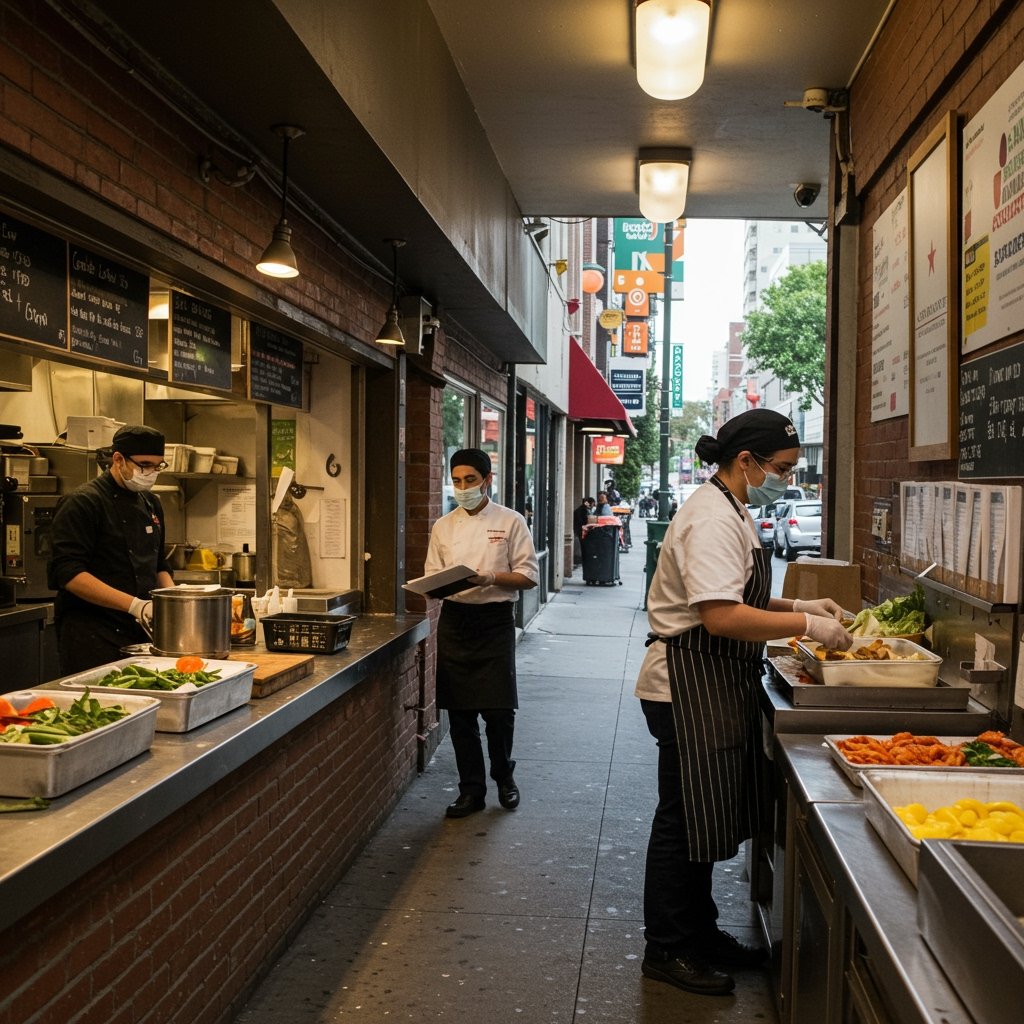Landmark California Bill Advances to Tackle Restaurant Food Waste
SACRAMENTO, CA – Legislation aimed at significantly curbing food waste generated by restaurants across California is making critical headway in the state legislature. Assembly Bill 310 (AB 310), a measure proposing mandatory food waste diversion for larger dining establishments, successfully cleared a pivotal committee vote this week, signaling growing momentum for stricter environmental regulations within the state’s expansive food service sector.
Sponsored by Assembly Member Anya Sharma, a Democrat representing Sacramento, AB 310 confronts the pressing issue of organic waste filling landfills, which contributes substantially to greenhouse gas emissions. The bill posits a direct regulatory approach, targeting restaurants based on the sheer volume of organic waste they produce.
The Core Mandate: Targeting High-Volume Waste Generators
At the heart of Assembly Bill 310 is a clear directive for restaurants that meet a specific threshold: those generating over 500 pounds of organic waste on a weekly basis. This benchmark is designed to focus initial compliance efforts on larger operations that are presumed to have the greatest impact on the waste stream.
For these high-volume establishments, the bill mandates the implementation of state-approved systems for managing their organic waste. The primary acceptable methods outlined in the legislation are composting and anaerobic digestion. Composting involves the controlled decomposition of organic materials into nutrient-rich soil amendments, while anaerobic digestion is a process where microorganisms break down organic matter in the absence of oxygen, producing biogas (a renewable energy source) and digestate.
This mandate is not immediate but comes with a firm deadline. According to the provisions of AB 310, qualifying restaurants must have these state-approved systems in place and operational by January 1, 2027. This timeline is intended to provide businesses with sufficient opportunity to assess their waste streams, select appropriate service providers or infrastructure, and integrate new practices into their operations.
Economic Support: Tax Incentives for Independent Restaurants
Recognizing the potential financial burden associated with adopting new waste management practices, especially for smaller businesses, Assembly Bill 310 includes provisions for economic support. The bill proposes tax incentives specifically tailored to assist independent restaurants in making this transition.
These incentives are directed towards independent establishments defined within the bill as those employing fewer than 50 employees. The inclusion of this provision underscores an awareness of the diverse landscape of California’s restaurant industry, which is significantly populated by smaller, locally-owned businesses that may have fewer resources than large chains or corporate-owned operations.
According to the bill’s current language, these tax incentives are slated to become available starting in the 2026 fiscal year. This timing aligns with the period leading up to the mandatory compliance deadline, aiming to provide financial relief and encourage proactive adoption of the required waste diversion methods ahead of the January 1, 2027, cutoff.
Legislative Progress and Sponsorship
Assembly Bill 310 is championed by Assembly Member Anya Sharma, who represents the 7th Assembly District, encompassing parts of Sacramento and Yolo Counties. Assembly Member Sharma has framed the bill as a necessary step towards achieving California’s ambitious environmental goals and reducing the significant environmental footprint of the food service sector.
The bill’s recent passage through a key legislative committee marks a significant step forward in its journey through the California State Legislature. Committee votes serve as critical checkpoints, evaluating the bill’s merits, potential impacts, and garnering initial support or opposition before it proceeds to the full Assembly floor and subsequently to the Senate.
Stakeholder Perspectives: Support and Concern
The proposed legislation has elicited responses from various stakeholders within the state. Environmental advocates have been vocal proponents of AB 310, lauding its progress through the legislature. These groups highlight the urgent need to divert organic waste from landfills, citing the substantial role of decomposing food in producing methane, a potent greenhouse gas contributing to climate change.
Advocates view the bill as a crucial mechanism to accelerate waste reduction efforts already underway in California and to hold a major industry sector accountable for its waste output. They emphasize that composting and anaerobic digestion not only prevent harmful emissions but can also create valuable resources, such as compost for agriculture and renewable energy.
Conversely, the California Restaurant Association (CRA), a key industry trade group, has voiced concerns regarding the potential implications of the bill, particularly for smaller operators. While acknowledging the importance of environmental stewardship, the CRA’s concerns center on the practical challenges and costs associated with implementing the mandated waste management systems.
The Association argues that finding suitable composting or anaerobic digestion services, especially in certain regions of the state, could be difficult or prohibitively expensive for some businesses. They stress that even establishments below the 500-pound weekly threshold could face operational adjustments and costs if they voluntarily choose to participate in such programs or if future regulations expand the scope.
Context and Potential Impact
California has been at the forefront of implementing policies aimed at reducing organic waste, notably with Senate Bill 1383 (SB 1383), which targets a 75% reduction in statewide organic waste disposal by 2025. AB 310 can be seen as a targeted measure designed to ensure that the restaurant sector contributes significantly to these broader state goals.
The bill’s potential impact is substantial, given the sheer volume of food processed and consumed by California’s vast restaurant industry. By mandating diversion for the largest waste producers, the state aims to create a significant shift in waste handling practices, potentially spurring growth in the composting and anaerobic digestion infrastructure needed to support the program.
However, the success of the mandate will depend heavily on the accessibility and affordability of compliant waste management services and the effectiveness of the proposed tax incentives in mitigating financial challenges for eligible independent restaurants. The concerns raised by the California Restaurant Association highlight the need for practical implementation strategies and adequate support mechanisms.
Looking Ahead
With its successful committee passage, Assembly Bill 310 will now move forward in the legislative process, facing further scrutiny and votes in other committees and eventually the full Assembly and State Senate. The debate surrounding the bill is expected to continue, balancing environmental imperatives with economic realities and operational feasibility for California’s diverse restaurant landscape.



















